Using Home Equity to Buy an Investment Property
A home line of credit (HLC) and a home equity loan (HEL) are two common ways to access the value of your home for financial needs. A HLC is essentially a revolving credit account that allows you to borrow up to a certain limit, pay it back, and then borrow again as needed. This makes it an ideal choice for homeowners who need access to money over time for projects, expenses, or investments. A HEL is a lump-sum loan that provides one payment of funds that can be used for home renovations, debt consolidation, or other financial needs.
The amount you can borrow with either type of loan depends on your home’s equity and your creditworthiness. Generally speaking, the more equity you have in your home, the more money you can access through either type of loan. Also, a good credit score will help to get better interest rates and terms.
HELOCs Explained
A home line of credit, also known as a home equity line of credit (HELOC), is a type of loan that allows homeowners to borrow against the equity in their home. While a home line of credit can be a useful tool for accessing funds, it's important to use it wisely and in the right situations.
One of the best situations to use a home line of credit is for home renovations or improvements. Since home improvements can increase the value of your property, using a home line of credit to fund these projects can be a smart investment. This is especially true if the improvements will make your home more energy-efficient or increase its curb appeal.
Another situation where a home line of credit can be useful is for debt consolidation. If you have high-interest debt, such as credit card balances or personal loans, consolidating them into a home line of credit with a lower interest rate can save you money on interest charges over time. However, it's important to be disciplined and not accumulate new debt after consolidating your existing debts.
Finally, a home line of credit can be a good option for unexpected expenses, such as medical bills or emergency home repairs. Since a home line of credit allows you to borrow funds as needed, you can access the funds quickly and easily without having to go through a lengthy application process.
Ultimately, the best situation to use a home line of credit is when you have a specific need for the funds and a plan for paying back the loan. It's important to remember that a home line of credit uses your home as collateral, so if you are unable to repay the loan, you could risk losing your home. As with any type of loan, it's important to borrow responsibly and only take out what you need.
Before deciding to use a home line of credit for real estate investing, it's important to thoroughly research the market and the specific investment opportunity. It's also critical to have a solid financial plan in place, including a strategy for paying back the home line of credit in a timely manner. Real estate investing can be a lucrative way to build wealth, but it requires careful planning and a willingness to take calculated risks. While it can provide access to funds that can be used to purchase investment properties or make improvements to existing properties, a HLC can also put your home at risk if the investment doesn't pan out. Additionally, using a home line of credit to invest in real estate can result in higher interest rates and fees compared to other types of financing, such as a traditional mortgage or investment loan. As with any investment strategy, it's important to consult with a financial advisor or professional before making any decisions.
Home Equity Loan
Home Equity Loan is a type of loan that allows homeowners to borrow against the equity in their home. It can be an advantageous option for those looking to consolidate high-interest debt, fund a large one-time expense, or make home improvements. Home Equity Loans typically have lower interest rates than credit cards and personal loans, making them a smart choice for consolidating debt. They can also provide access to a large amount of funds without having to take out a personal loan or use credit cards with high interest rates. Additionally, Home Equity Loans can be used to make home improvements that add value to your property, such as adding a new roof, remodeling a bathroom or kitchen, or installing energy-efficient windows. Before taking out a Home Equity Loan, however, it's crucial to ensure that you have a solid plan for repaying the loan in a timely manner and avoiding default, which could result in foreclosure.
When it comes to deciding between a HLC and a HEL, it’s important to consider which type of loan best fits your needs. If you need ongoing access to funds or want to spread out payments over a longer period of time, then a HLC might be the best option. If you need funds for one specific expense or project and don’t want to pay interest on a revolving credit line, then a HEL could be the better choice.
Ultimately, it’s important to carefully consider your financial needs and which type of loan best fits those needs. Both a HLC and a HEL can be great tools for gaining access to the equity in your home, so understanding the differences between them is key. With careful research and consideration, you’ll be able to make an informed decision that will help meet your financial goals.
For more information on Home Line of Credit versus Home Equity Loan and when to use them, be sure to consult with a financial professional. They will be able to help guide you in the right direction and make sure that you are getting the best loan for your individual situation. Good luck!
